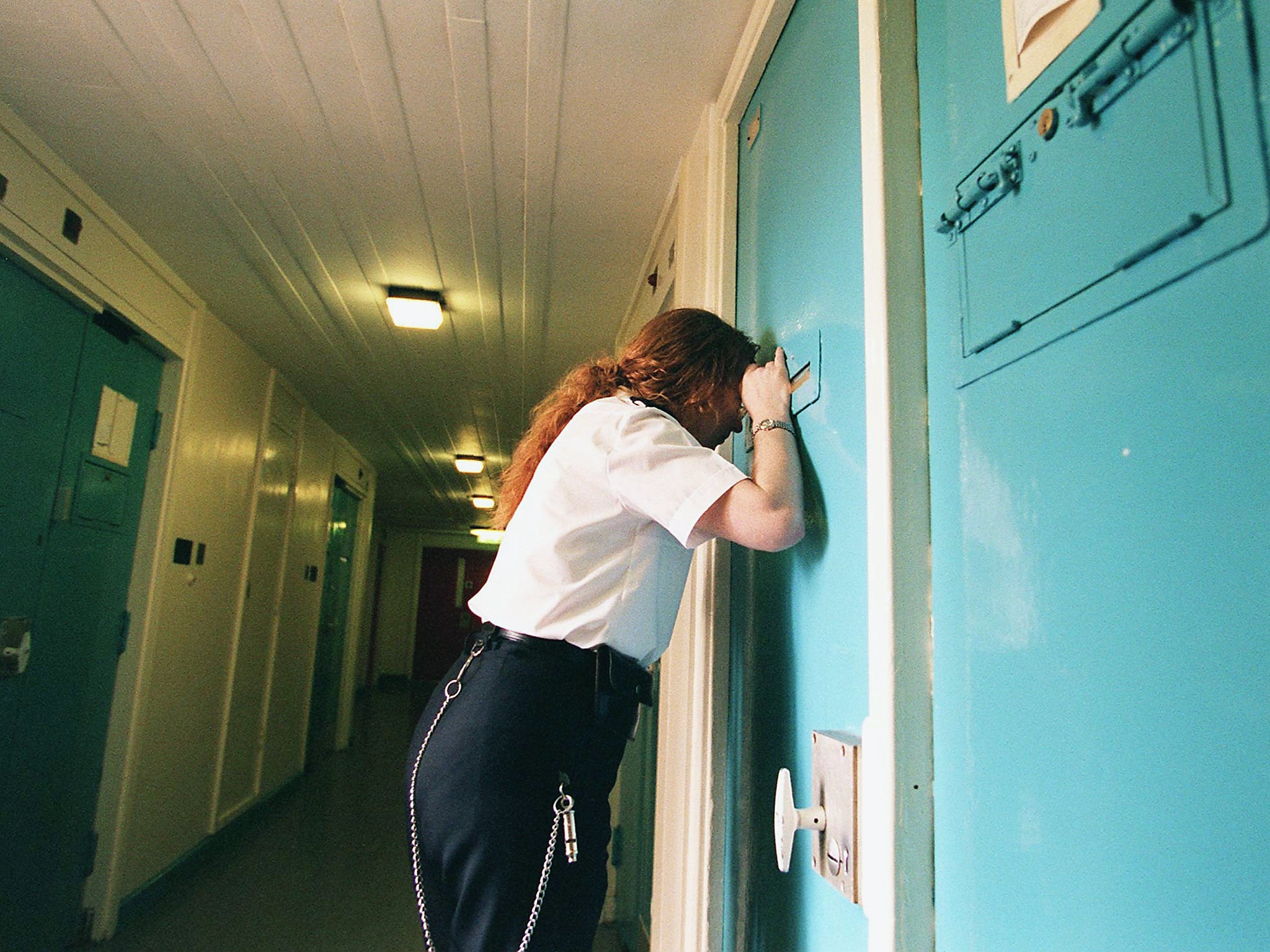More prisoners to be temporarily released for work as government relaxes rules
Government says inmates will undergo ‘tough risk assessment’ as part of push to reduce reoffending

More prisoners are to be temporarily released for work, education or to see loved ones after the government relaxed rules.
The Ministry of Justice aims to drive down reoffending, which is estimated to cost society £15m a year, by improving convicts’ prospects of finding employment and a stable home life.
Release on temporary licence (ROTL) was previously restricted to offenders in certain types of prisons or nearing the end of their sentences, but will now be allowed more widely.
Governors will be able to allow all inmates in open prisons and women’s jails out, and offenders will be eligible for paid work immediately after passing “a tough risk assessment”.
A restriction on ROTL in the first three months after transferring to open conditions will be lifted, while overnight release from open prisons – to re-establish family links – can now be considered at an earlier stage.
UK prison conditions: in pictures
Show all 8The application process for the scheme is also being made more efficient, officials say.
The government said released prisoners are nine per cent less likely to commit further crimes if they are employed, and getting them into work while still serving sentences boosts prospects on release.
ROTL numbers fell after a 2013 review led to rules on the scheme being tightened up.
At the time, the Ministry of Justice cited several cases where prisoners had committed crimes - including the murder of Graham Buck by a convicted killer on day release.
His wife, Karen Buck, told BBC Radio 4's Today programme she was concerned that the "multitude of errors" that caused her husband's death could be repeated.
"I'm not convinced that with the prison service in its current state and with the problems in the probation service, that the supervision that is necessary and the preparation necessary for safe release are actually going to be in place," she added.
Statistics show there were 366,868 incidences of ROTL in England and Wales last year, involving 7,724 people.
The 2018 figures were up year-on-year but remained below those for 2013, when there were more than half a million incidences involving over 11,000 individuals.
Plans to expand the use of workplace ROTL were set out in the Ministry of Justice’s wider education and employment strategy last year.
In a round-up of progress 12 months on, the department said 230 additional businesses have joined its flagship offender work-placement scheme.
They include Pret a Manger and the pub chain Greene King, which said the initiative was securing a “pipeline of talent” and plugging a “nationwide shortage of kitchen staff” in the British hospitality industry.
David Gauke, the justice secretary, said 99 per cent of all releases occur "without any breach whatsoever" and serious offences were very rare.
"We believe we can put in place a thorough risk assessment," he added.
“Broadening access to training and work opportunities is a vital part of our strategy to steer offenders away from a life of crime and ultimately keep the public safe.
“Many organisations are recognising the value of giving offenders a second chance, and we have carefully listened to their feedback before making these changes.
“I urge more businesses to join this movement and help ex-offenders turn their backs on crime for good.”
The Ministry of Justice has also been battling rising violence and drug use in prisons, which has been partly blamed on budget cuts that hit officer numbers.
It said violent incidents had fallen by 11 per cent in the last three months of 2018, compared to the previous quarter.
As the prisons minister, Rory Stewart vowed to resign if violence did not drop in targeted jails but was made international development secretary in the cabinet reshuffle that followed the sacking of Gavin Williamson.
Peter Dawson, director of the Prison Reform Trust, said ROTL had “proven benefits in terms of preparing prisoners for a crime free life”.
“There is much further to go—prisoners are serving longer sentences than ever before, and these changes will mainly benefit only the minority who have managed to get to an open prison towards the very end of their time inside,” he added.
The Revolving Doors Agency, which works in rehabilitation, said inmates were losing jobs because of short sentences, adding:“We mustn’t forget that for the third of short term prisoners released with nowhere to live, employment will remain a huge challenge.”
Mr Gauke has been calling for short prison sentences to be scrapped in a bid to drive down reoffending and undone much of Chris Grayling’s disastrous 2014 reforms.
He is renationalising the monitoring of released criminals, following years of calls to scrap failing private companies.
But a recent inspection suggested the government’s changes to licence conditions would continue to drive up the prison population and trap offenders in a cycle of crime.
Subscribe to Independent Premium to bookmark this article
Want to bookmark your favourite articles and stories to read or reference later? Start your Independent Premium subscription today.
